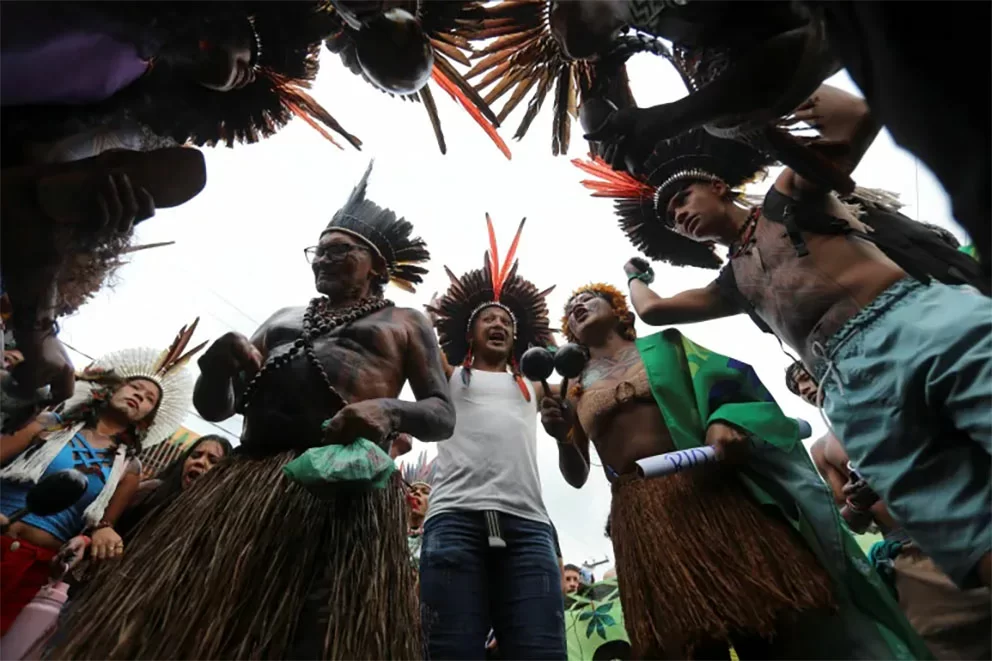Indigenous demonstrators clashed with security forces outside the venue of the COP30 United Nations climate conference in Belem, Brazil, demanding urgent climate action and forest protection. The protesters attempted to breach the UN compound on Tuesday, where thousands of international delegates had gathered for the climate talks. Many carried flags advocating for land rights and signs with messages such as ‘Our land is not for sale.’
Nato, a leader from the Tupinamba Indigenous community, emphasized the protesters’ demands, stating, ‘Money is not edible. We want our land free from agriculture, oil exploration, illegal mining, and logging.’ Security personnel pushed back the demonstrators, barricading the entrance with tables. Witnesses reported that a guard in a wheelchair was evacuated while clutching his stomach, and another guard sustained a cut above his eye after being struck by a heavy drumstick thrown from the crowd. Security confiscated several heavy sticks from the protesters.
Maria Clara, a demonstrator from the Rede Sustentabilidade Bahia association, highlighted the plight of Indigenous peoples, saying, ‘These voices are being ignored.’ The confrontation ended as the protesters, part of a larger march of hundreds, dispersed. Security later allowed delegates to leave after initially instructing them to remain indoors until the area was secured.
A spokesperson issued a statement confirming the incident: ‘Earlier this evening, a group of protesters breached security barriers at the main entrance of COP, resulting in minor injuries to two guards and slight damage to the venue. Brazilian and UN security personnel implemented protective measures in accordance with established protocols. Authorities are investigating the incident, and the venue is fully secured. COP negotiations continue.’
João Santiago, a professor at the Federal University of Para, noted that the Indigenous movement sought to voice its demands within the ‘blue zone’ but was denied access. Brazilian President Luiz Inacio Lula da Silva has emphasized the importance of Indigenous communities in this year’s COP30 negotiations. Earlier this week, dozens of Indigenous leaders arrived by boat to participate in the talks and advocate for greater involvement in forest management.
In an interview with Reuters, respected Indigenous leader Raoni Metuktire, also known as Chief Raoni, expressed frustration over ongoing industrial and development projects in the Amazon. He called on Brazil to support Indigenous efforts to preserve the rainforest.
